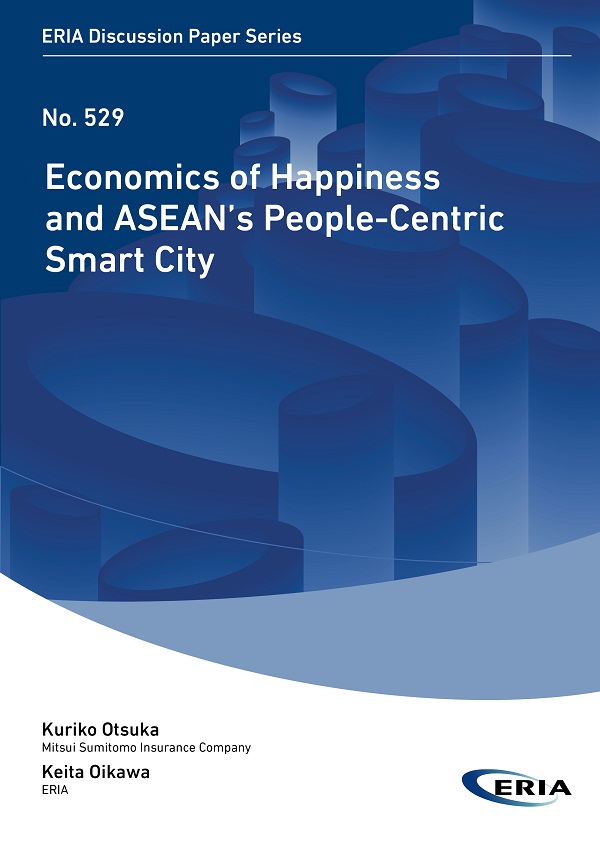Economics of Happiness and ASEAN’s People-Centric Smart City

Date:
29 July 2024Type:
Discussion PapersTags:
Economics of happines, Subjective well-being, People-centric smart city, ASEANPrint Article:
The economics of happiness explores self-reported happiness or subjective well-being (SWB) by integrating economic methods with psychological approaches and utilising large-scale surveys across diverse countries. Originating in Easterlin’s pivotal work in 1974, this field examines the intricate link between factors of life events and environments and SWB. It reveals that material attainments (e.g. income) do not increase people’s SWB in the long run, whereas non-material attainments enhance SWB over time. In the context of urban development, non-material factors positively affecting SWB include active participation in communities and self-determination in one’s life. In recent years, well-being has been a key measure for smart city initiatives, including the Association of Southeast Asian Nations (ASEAN) Smart Cities Network. To enhance people’s SWB through active community participation and decision-making in community services and activities, we propose that ASEAN promote a people-centric smart city (PCSC) model. This model defines a city that engages and includes citizens at every phase of city planning to ensure inclusivity. To implement a PCSC effectively, a comprehensive approach is essential, involving surveying well-being elements, clarifying community goals, enhancing digital literacy, setting rules and key performance indicators, and engaging citizens proactively. Collaboration amongst various sectors is crucial. A PCSC is not confined to online platforms; face-to-face meetings promote inclusivity and prevent exclusivity.




